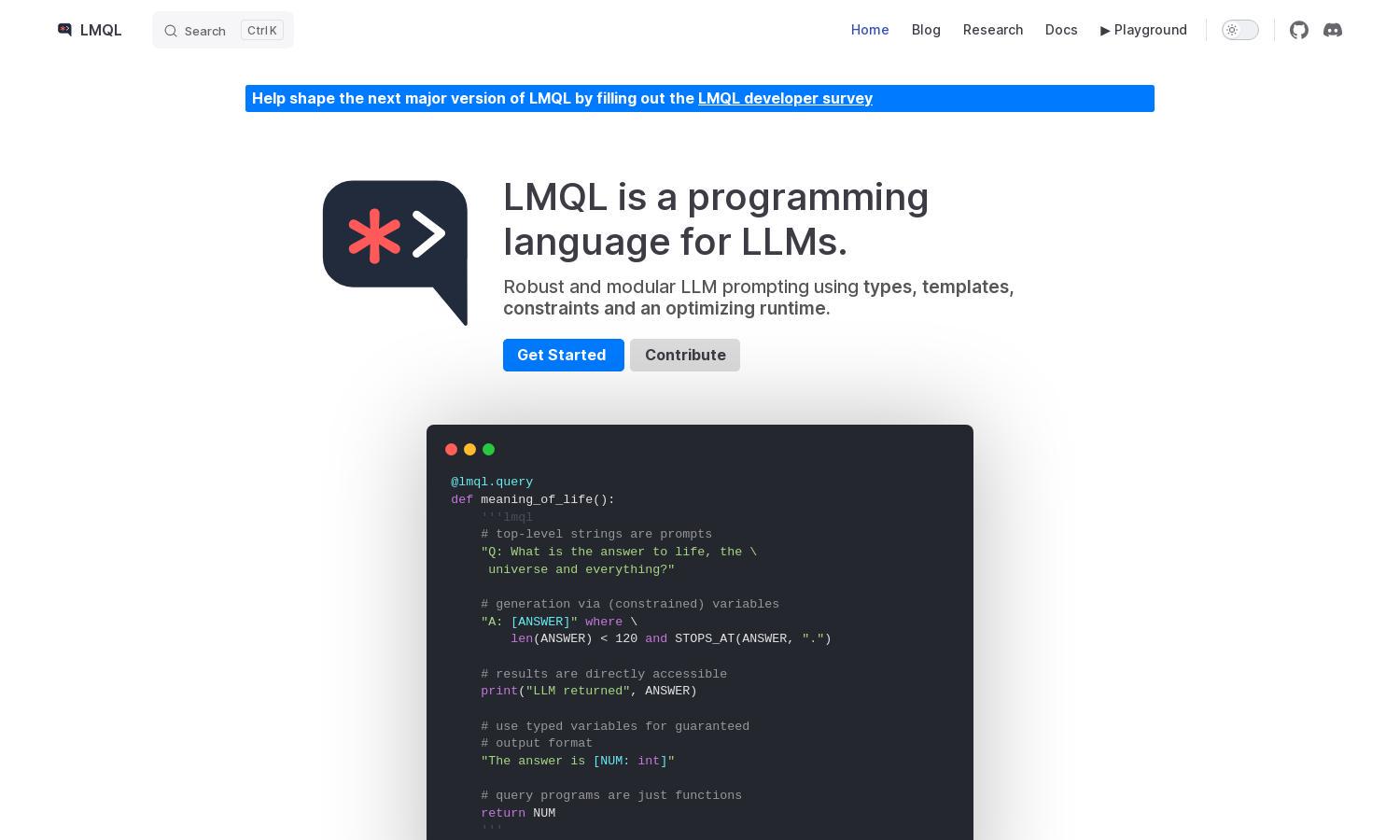LMQL

About LMQL
LMQL is a cutting-edge programming language designed for developers to interact seamlessly with large language models (LLMs). It enables robust and modular prompting with features like nested queries and variable constraints, streamlining the development process and enhancing the usability of AI technologies effectively, targeting both novice and expert users.
LMQL offers a flexible usage model with subscription tiers designed for varying developer needs. The base plan is free, while premium tiers unlock advanced features like enhanced support and additional resources. Upgrading provides users with the tools to maximize their projects alongside seamless access to community contributions.
The user interface of LMQL is intuitively designed for seamless navigation, promoting an efficient workflow for developers. Its layout makes it easy to access features like nested queries and variable management, ensuring a user-friendly experience that enhances productivity while engaging effectively with language models like never before.
How LMQL works
Users interact with LMQL by signing up and accessing the platform through its web interface. They can create prompt functions in Python, leveraging types, templates, and constraints to structure their queries. The unique execution model allows for modular queries and optimized code execution, streamlining the development of applications using large language models in an efficient manner.
Key Features for LMQL
Modular Prompting
LMQL's modular prompting feature allows users to construct prompts using nested queries and variable constraints, making it easier to create dynamic, reusable interactions with large language models. This innovative functionality enhances coding efficiency, providing users a simple way to manage complex LLM interactions effectively.
Portability Across Platforms
One standout feature of LMQL is its ability to make LLM code portable across different backend platforms. Users can switch between platforms seamlessly with just a single line of code, ensuring flexibility and reducing the complexity of managing various LLM environments to enhance their development workflows.
Optimizing Runtime
LMQL features an optimizing runtime that ensures efficient execution of language model queries by enforcing constraints dynamically. This optimization significantly improves response times and output quality, providing users with reliable interactions and enhanced performance tailored to complex queries within the LLM environment, contributing to a better user experience.
You may also like:








